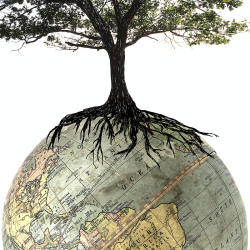Specialisation for Developing Countries: Advantages and Disadvantages
 Advantages of specialisation for Developing Countries
Advantages of specialisation for Developing Countries
Increased Production. Developing countries with specialisation are able to gain efficiencies generated from economies of scale and increased output (Mankiw 2004)
Production Efficiency. The more efficient use of resources, the higher will be productivity of output of domestic goods and services. Furthermore, international competition leads to use of new technology and marketing methods (Parkin 2008).
Benefit to Customers. Parkin (2008) mentions that specialisation in producing limited range of products offer wide range of choice for customers around the world at lower prices as people have tremendous diversity in tastes for different products and they value variety.
Arguments against Free Trade and Specialisation.
However, Carbaugh (2004) argues that the key to success in free trade can be achieved only through mutually beneficial approach, which satisfies both the giver and taker. Though law of comparative advantage maintains that nations benefit equally from international trade, there might not be mutual benefits between strong and weak countries, as the strong countries tend to take more advantage of it (Mankiw 2004).
Many economists believe that current international markets are not level playing field and trade systems in practice favours developed countries and hinder development in the developing or less-developing nations (Carbaugh 2004). They also suggest that organisations such as IMF or WTO mainly work to fulfil interest of powerful countries (Parkin 2008).
Another fallacy about free trade is that imports reduce employment, while exports promote growth. Therefore, the notion that import are “bad” while exports are “good” particularly popular among politicians and media (Carbaugh 2004).
References
Carbaugh (2004) “International Economics”, Ninth Edition, Thomson, New York
Mankiw (2004) “Principle of Macroeconomics”, South Western, USA
Parkin (2008) “Macroeconomics”, Pearson, USA
